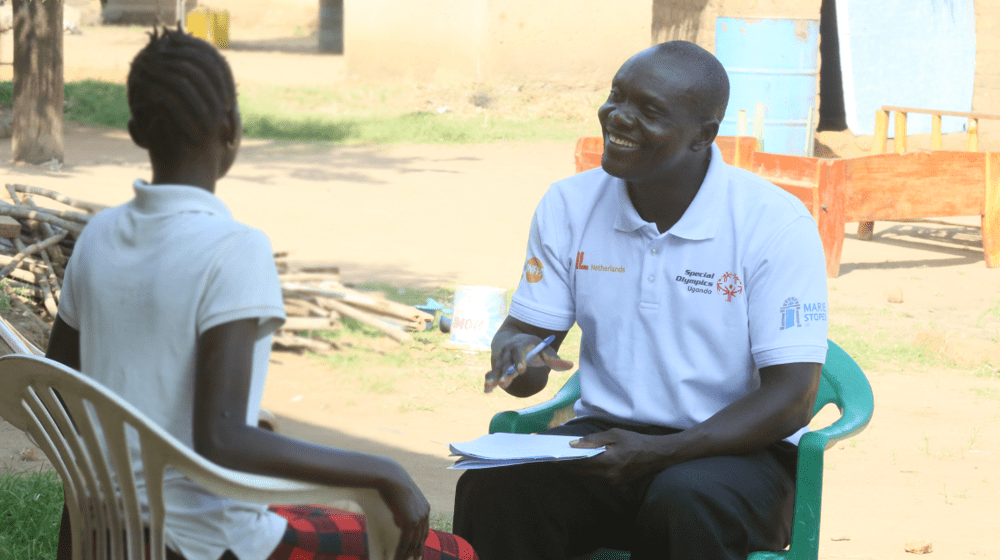I wish I had known earlier that this is not a curse
ADJUMANI, UGANDA – Born with an intellectual disability, 17-year-old Miriam should have been supported by her family and community to overcome the challenges life had presented her with. Instead, she was ostracized, labelled as ‘cursed’, and even denied the basic support, health care and rights every individual is entitled to.
Around the world, one in five women live with a disability. They are all too often excluded from making decisions that affect their lives, especially those related to their sexual and reproductive health and rights.
For Miriam, this discrimination led to a life of isolation, with barely any human interaction. While Mariam was sexually active, no one knew or thought that she needed support to protect herself or make informed decisions regarding her sexual health. That was until she crossed paths with Mark, a social worker who helped her overcome the barriers imposed by her community.
As part of his job as a social worker, Mark makes house calls to counsel families with children and young people living with a disability, addressing their specific needs. It was through one of these calls that he heard about Miriam and reached out to her grandmother.
“I wish I had known earlier that this is not a curse”
Miriam’s grandmother was initially hesitant to disclose her granddaughter’s story, for fear of stigma. But Mark’s sessions with Miriam soon became a lifeline, allowing her to express her fears and concerns, such as of becoming pregnant without intending to. Mark referred her to a hospital, where she was provided with quality health care and contraception services, as well as information to protect herself from sexually transmitted infections and unintended pregnancies.
Miriam’s grandmother participated in a family forum organized by Special Olympics Uganda in partnership with the ANSWER programme – Advancing Sexual and Reproductive Health and Rights in West Nile and Acholi sub-regions in Uganda – which is implemented by UNFPA and has been funded by The Netherlands for the last four years. “I never knew this was a medical condition, because no one has ever talked to me about it,” her grandmother explained.
“I am happy to know that we are not alone, and this is not a curse. I wish I had known earlier in her young life and never lived with shame in the community.” Miriam’s grandmother has started advocating for more gatherings to combat social exclusion of people with disabilities, and to uphold their sexual and reproductive health needs and rights.
ANSWER is part of the answer
Miriam is one of many young people whose lives have been transformed by the ANSWER programme: In 2023, over 117 teachers, village health teams, peer educators and social workers have been trained in the identification of young people with intellectual disabilities. Like Mark, service providers learned to provide comprehensive sexuality education for adolescents and young people, in and out of school.
Yet, the journey is far from over in Uganda, where sexuality education is still opposed by many – particularly for people with disabilities. Prevailing negative attitudes prevent people living with a disability from accessing quality reproductive health services and leave them more vulnerable to abuse. Persons with disabilities under the age of 18 are nearly four times more likely to experience abuse compared to their peers without disabilities.
UNFPA and partners like The Netherlands work towards the goal of universal access to sexual and reproductive health, so that every person has the right to make their own choices about their body and their lives.


